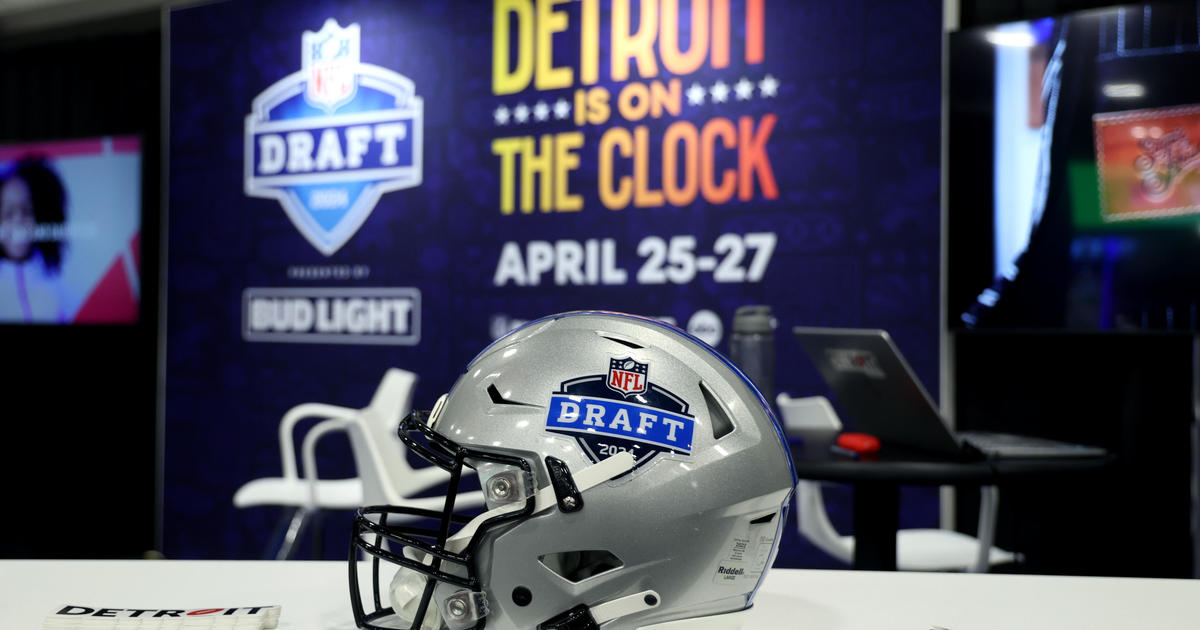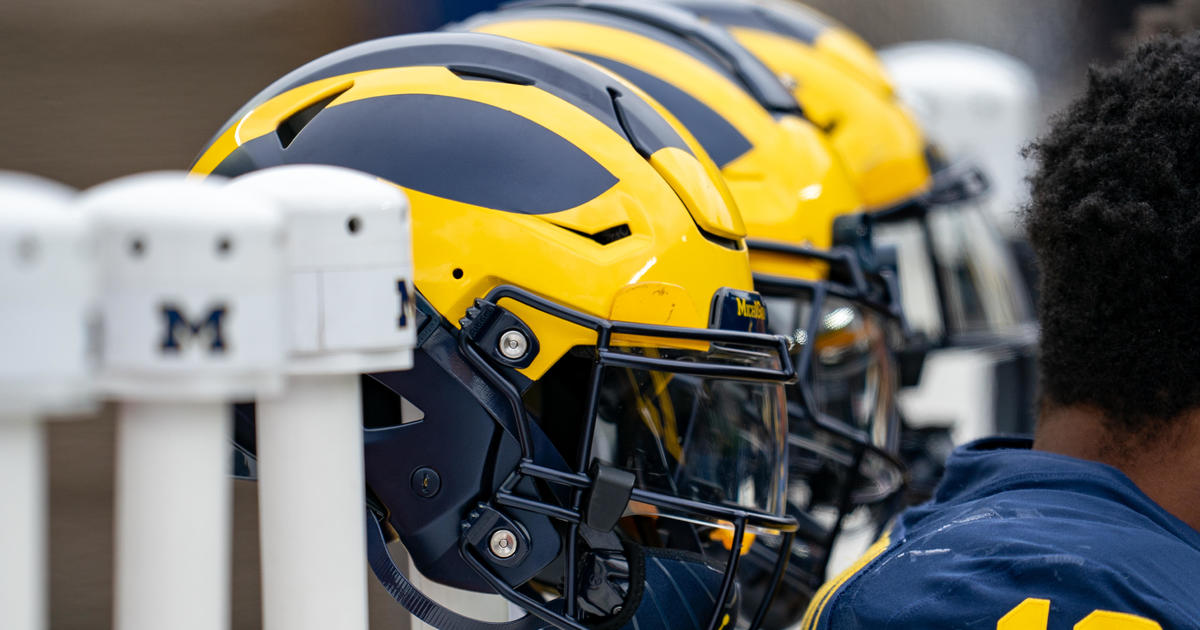As Feds Investigate NFL's Distribution Of Painkillers, Former Lion J.D. Hill Recalls 'Free And Loose' System
By Ashley Dunkak
@AshleyDunkak
CBS DETROIT - When hundreds of former NFL players sued the league in May, alleging that teams illegally supplied them with prescription drugs to keep them on the field, the federal government took notice.
The Drug Enforcement Administration has opened an investigation that will explore how teams obtain and distribute prescription drugs, including narcotics like Vicodin, Percodan and Percocet as well as anti-inflammatories such as Toradol, according to the New York Daily News.
"The allegations in our lawsuit, that the NFL has violated state and federal drug laws, have been confirmed by over 1,300 former NFL players," Steve Silverman, an attorney for the former players, told the New York Daily News. "We are pleased to learn that the DEA and United States Department of Justice are also taking our clients' allegations seriously and are actively protecting the welfare of NFL players."
"They want to find out who provided and distributed the drugs to football players," one source told the newspaper.
The 1995 book "You're OK, It's Just A Bruise" exposed the ugly shoot-'em-up, send-'em-out medical culture of the Oakland Raiders almost two decades ago, but former players say cavalier distribution of painkillers has been a league-wide problem.
"It was pretty free and loose," said former Detroit Lion wide receiver J.D. Hill, who played from 1971 to 1977. "It was pretty free and loose."
One of the plaintiffs in the lawsuit against the NFL, Hill recalled going on the team plane after games and accepting pain medication that was offered with no more formality than a question about whether he was hurting. Hill said team personnel never told players about possible side effects of medications.
Nor, Hill said, were players warned that they should not drive after taking certain pills, that they should not share their medication with teammates and that they needed to be careful which medications they took simultaneously.
"I didn't have a prescription," Hill said. "It was just, I was in pain, and so therefore I was given pills to kill the pain."
Several of the players named along with Hill in the lawsuit, including 1985 Super Bowl-winning Chicago Bears quarterback Jim McMahon, said they were not informed of serious injuries, even broken bones. McMahon alleges he was kept in the dark about a broken neck and broken ankle. Players say that they were simply given painkillers to mask the severity of the injuries.
"With hips and with knees, with ankles, with necks, you name it, whatever injury you could possibly think of, guys were put back on the field to play because that was what we were told to do," Hill said. "Some players didn't know their options, and so taking the pain killers and taking advice of the trainers and doctors is what players did ... Most of us were in that boat, that we had no idea the side effects... the addiction that could occur, some of the medications, the pain killers that were being given to us, the addiction problems or the long-term effects that these pills could cause.
"Now if they would have said, 'You take these pain killers, you take these pills, these are the side effects, this is what can happen,' at least you had an option to decide whether or not to take that pill," Hill added. "At least you could look at your options. But that was not given to players as far as what the pain killers would do to them."
When players became former players, health problems lingered and sometimes intensified. The injuries that often had been deadened by painkillers resurfaced, but then the players did not have access to the same resources they once did - not for the original injuries and not for any ailments that stemmed from the side effects of the medication they were given.
"Once you leave the game, guys are released, there's no list of doctors that they say, 'Here's a doctor that you can go to,'" Hill said. "You realize you have some injuries or you're in some pain, and you're just cut off, actually. You don't get to go into the training room. You don't have the attention that you had as a current player, and you're left pretty much hanging out to dry.
"That's an experience that I believe most of us have experienced is that you leave the game, you get cut off, and if that pain is still there that you were experiencing, and you were being taken care of, you were given necessary medication, not realizing what it might be doing to you, the side effects of it," Hill continued. "That was never told to us as players, that there are side effects to taking certain medications, but all we were doing was just taking them because they were saying, 'Here, take this. This is for pain.'"
Former Pro Bowler and current ESPN analyst Marcellus Wiley said the free-and-easy distribution of drugs flourished due to the unique reality of the NFL.
"You can't walk into a doctor's office and say, "Give me this, give me that, just to get through the day.' Somebody would shut the place down," Wiley said in June, according to CBS Sports. "But that's what was going on in the NFL. It's easy to get mesmerized. I won't deny that; there's this 'play through-the-pain, fall-on-the-sword' culture, and somebody in line ready to step up and take your place."
Hill has said previously that his use of painkillers while in the NFL led to drug abuse problems after he left the game, and his addiction eventually led to homelessness. Asked whether he would have declined the drugs he was offered when in the NFL, knowing what he knows now about side effects and addiction, Hill did not answer the question.
What is most important, Hill said instead, is that current NFL players be given the information and that the distribution of prescription drugs be handled in a responsible way.
"It was very loose, very loose," Hill said. "It created some situations in athletes that just should have never been."



